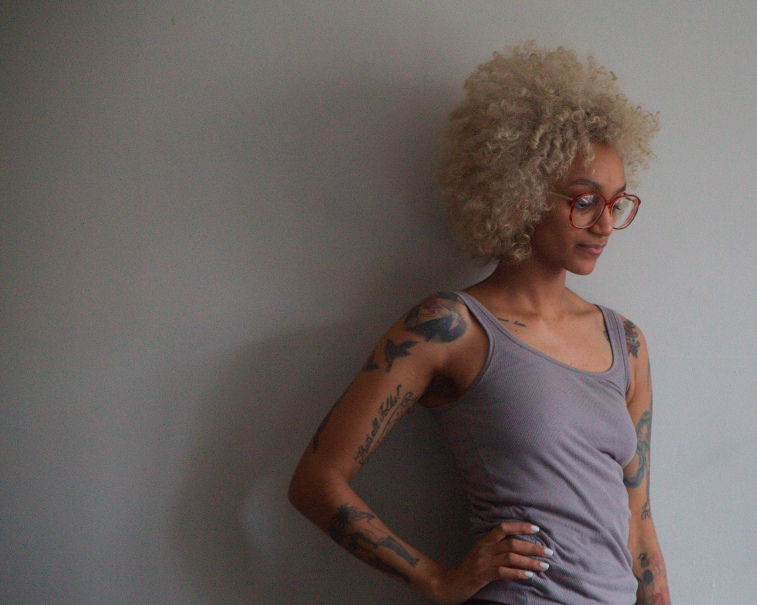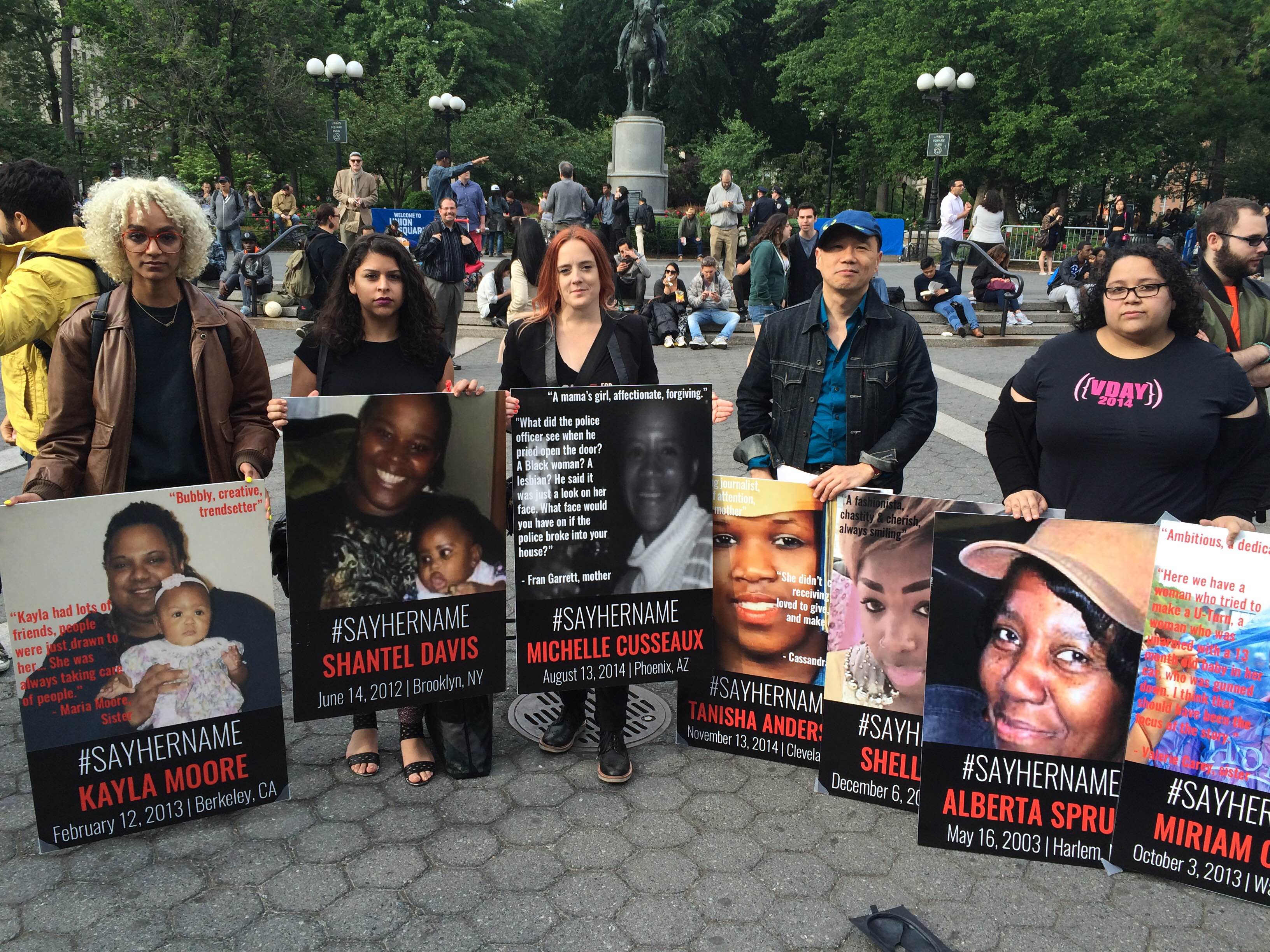Women Are Victims of Police Brutality, Too

By:
“It starts with the little things,” Kimberlé Williams Crenshaw, a professor at UCLA School of Law and Columbia Law School, where she specializes in race and gender issues, told ATTN:. She was referring to the call to action associated with the #SayHerName movement, which has been promoted by activists and social media in an effort to raise awareness of the problem of police violence against black women and girls.
“Say Her Name” is also the title of a recently released report from the African American Policy Forum (AAPF), the Center for Intersectionality and Social Policy Studies at Columbia University (TCIPS), and Soros Justice Fellow, Andrea Ritchie. The report, co-authored by Crenshaw, seeks to broaden our understanding of what constitutes police violence and who experiences it. It tells the stories of numerous black women and girls, all killed by police.

The report was released this past Wednesday, the same day a vigil was organized in NYC’s Union Square to remember these women’s lives.
Miriam Carey. Michelle Cusseaux. Kayla Moore. Rekia Boyd. Shantel Davis. Shelley Frey. Alberta Spruill. Tanisha Anderson.
Chances are you’ve never heard of them before. Which is exactly why their family members gathered -- joined by activists and a large crowd of supporters in Union Square -- to lift up their names on Wednesday evening: so they would not be forgotten.
While the stories of Freddie Gray, Walter Scott, Tamir Rice, and Eric Garner — all black men killed by police— have made headlines in recent news, black women with similar fates (both cisgender and transgender) have been largely ignored by the media.
As a result, their stories go unheard. They are ostensibly silenced. If all #BlackLivesMatter, then why are we only including a portion of them in the conversation?
Those supporting the #SayHerName movement hope to change that.
"We’re all here because we believe that Black women are an important and vital part of our global community, and every time we’re disappeared it’s at the expense of our humanity.” supporter Tanya McKinnon told ATTN:.
This is not just an issue that only Black women care about, either. McKinnon was joined by her mother, Hildegard, of German descent. When asked why #SayHerName is important to women of all colors, Hildegard, who grew up in Nazi Germany, replied with ease, “All lives matter.” It is as simple as that.
So simple, even children can see the point. McKinnon was joined not only by her mother, but by her eight-year-old daughter as well. “It was sad, but it was important,” she said matter of factly of her take on the event.
Wednesday’s vigil served to kickoff Thursday’s National Day of Action for Black Women and Girls, which was called by Black Youth Project 100, Ferguson Action, and Black Lives Matter. People in at least 21 cities across the country took part in community events and demonstrations aimed at raising awareness of the problem of police violence against black women and girls.
“This is just a way of trying to create a more inclusive racial justice agenda.” Crenshaw told ATTN:. “One that does more work.”
So what does a more inclusive vision of racial justice look like? Well, it responds to a more robust understanding of racial injustice, said Crenshaw, which includes women as victims of police abuse, women as the subjects of the very thing we’re marching around, and all the ways black bodies are subject to brutality.
In other words, to have a more inclusive vision of racial justice, we need to address all forms of injustice and everyone they affect. Not just forms of injustice which affect a specific subset of the population, like straight men, for example.
The #BlackLivesMatter movement, which was created in 2012 after Trayvon Martin’s killer, George Zimmerman, was acquitted, has inspired people all across the country to fight for racial justice. The hashtag distills the complexities of racial disparity into a simple and easy-to-remember slogan. That slogan has been a motor force in mobilizing a new wave of civil rights protests and reasserting the importance of recognizing black lives as good and necessary. #BlackLivesMatter is incredible, no doubt. But much of the movement has been focused on the lives of black men. What about the women?
The #SayHerName movement reminds us that black women’s lives matter also— not more than, or instead of black men’s lives. But the goal here is to provide a more complete narrative of the issues surrounding police brutality, racial inequality, and policing.
You can track #SayHerName on Twitter.
